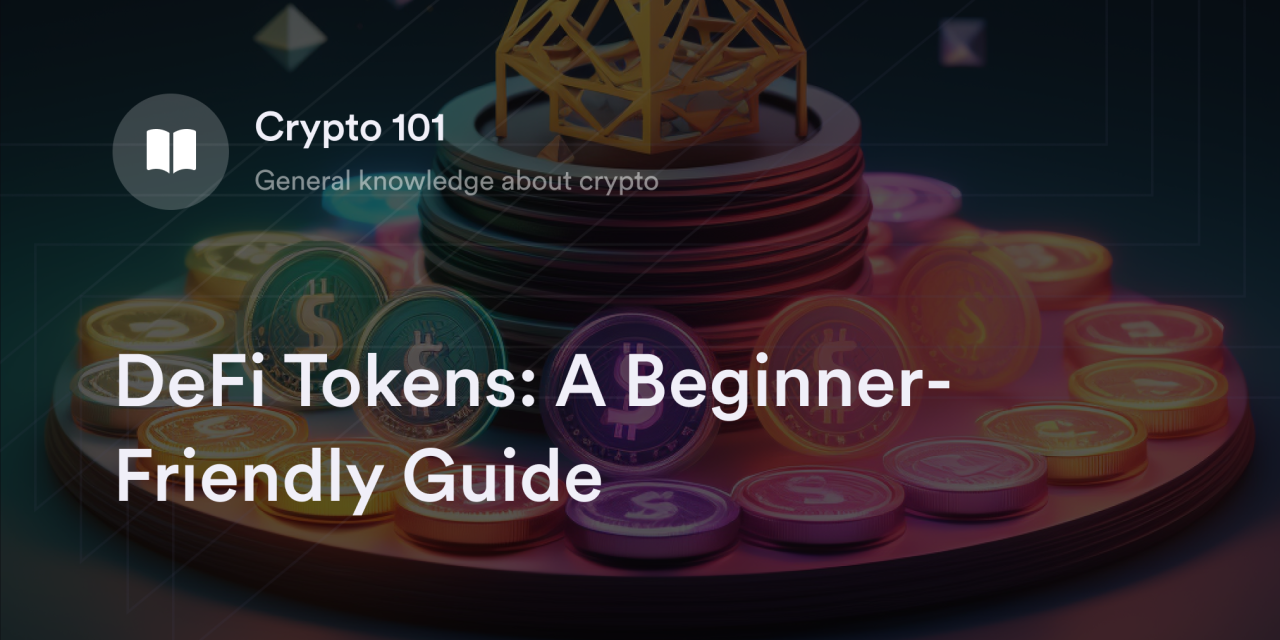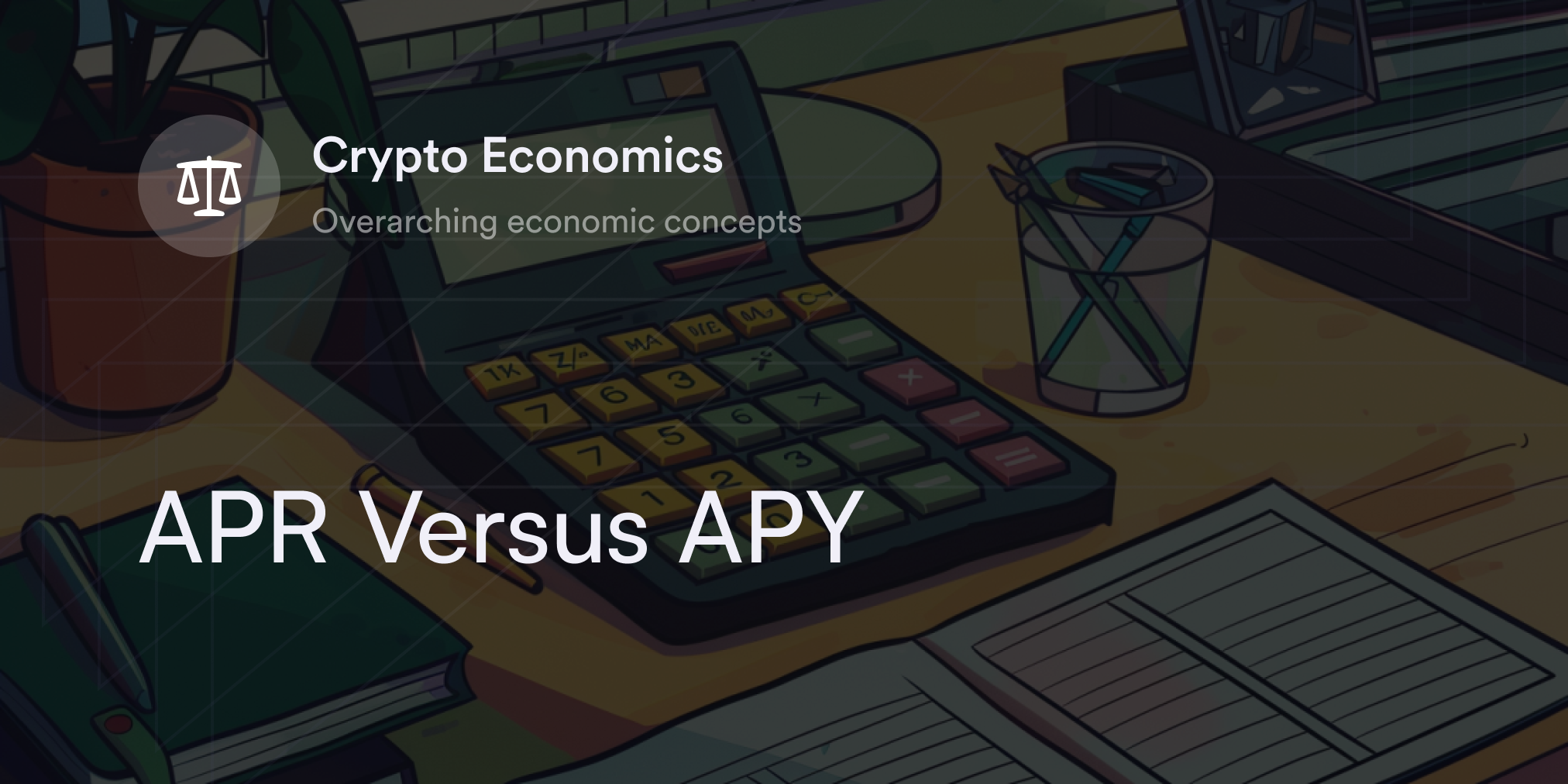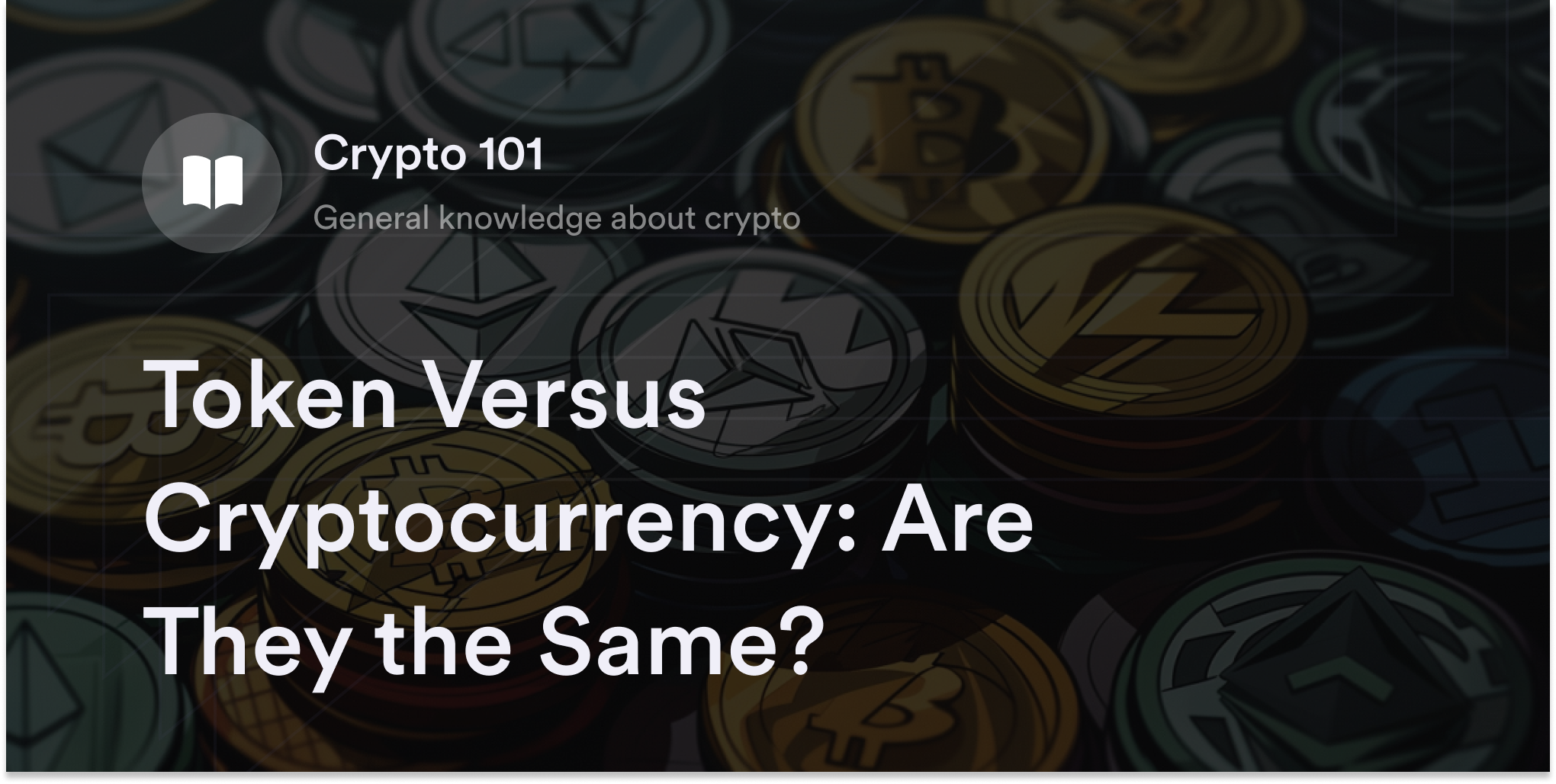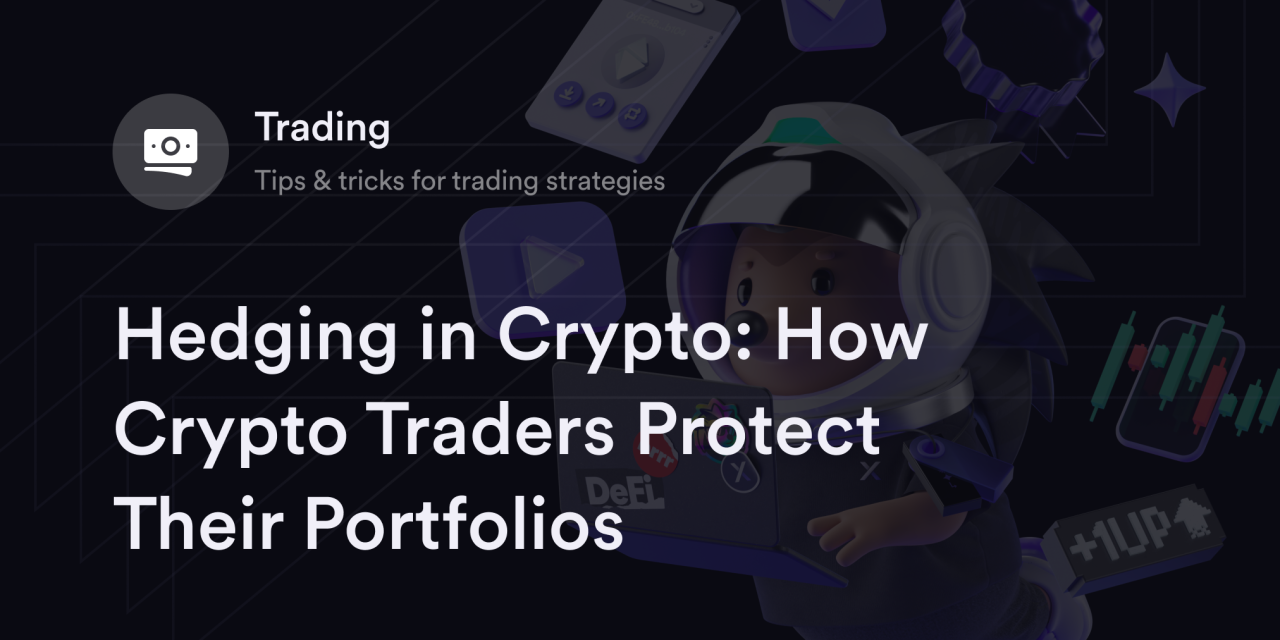
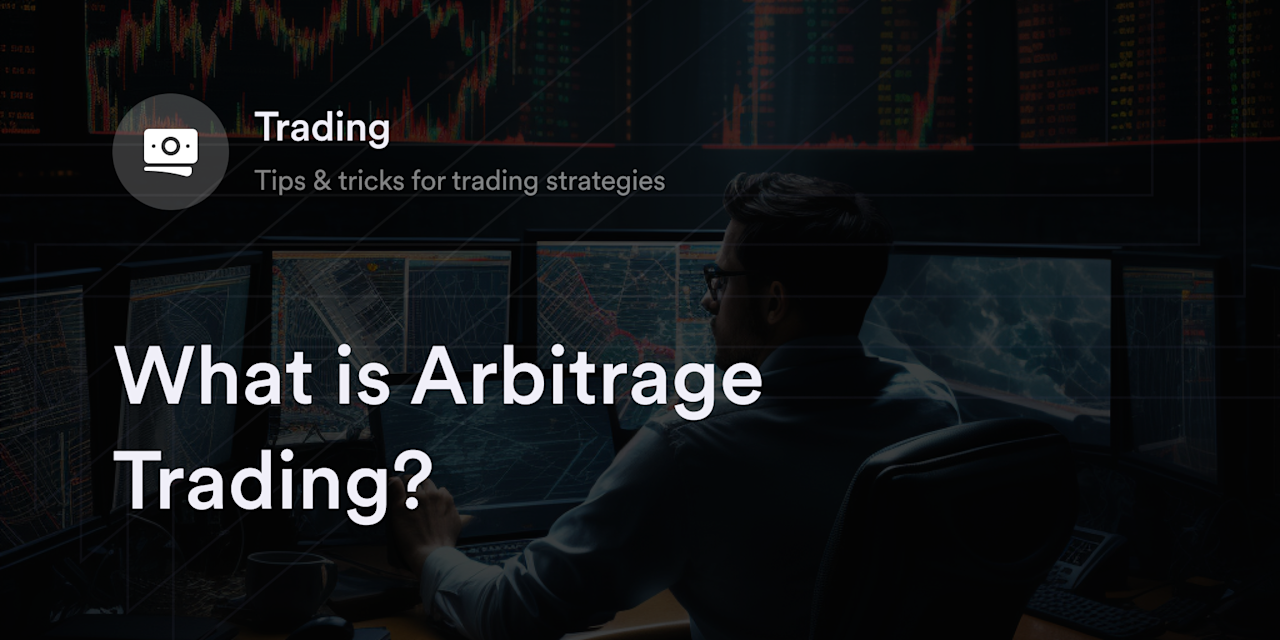

During the 2017 crypto bull run, some noticed Bitcoin (BTC) wasn’t trading for the same dollar amount on every website. Most notably, South Korean trading platforms offered BTC well above the average in Western nations, sometimes with a market price 50% above the value on U.S.-based exchanges. (This gap between crypto prices is called the Kimchi Premium.) Crypto traders who discovered this premium quickly started trading large quantities of BTC from the U.S. to South Korean markets to pocket high returns.
Although Korean authorities caught wind of this phenomenon and introduced strict measures to prevent it, this trading style (arbitrage) continues to occur in the crypto ecosystem. In fact, arbitrage trading serves a vital function in the crypto ecosystem, especially in emerging fields like decentralized finance (DeFi).
Let’s explore the ins and outs of arbitrage trading, including its purpose and risks new traders should consider.
What is Arbitrage Trading in Crypto?
Arbitrage is a fast-paced trading technique that exploits slight price differences in crypto assets across multiple exchanges. Instead of trading in cryptocurrencies and tracking their volatility, people using arbitrage look for obvious “gaps” (aka market inefficiencies) in crypto prices on different trading platforms to simultaneously buy and sell digital assets for immediate profits. Traders using arbitrage trading (aka arbitrageurs) swap their chosen coin or token on trading sites to seize these slightly different market values.
There are dozens of advanced arbitrage techniques, but the most basic strategy is to trade the same asset across two trading platforms when its posted price doesn’t match (aka spatial arbitrage). For example, suppose Bitcoin (BTC) trades for $30,000 per coin on centralized exchange (CEX) Kraken and $30,025 on competing CEX Coinbase. In this case, the Bitcoin arbitrage opportunity is $25 per coin. If someone were to buy four BTC on Kraken and instantly sell them on Coinbase, they’d realize a gain of $100.
However, people don’t need to trade the same digital asset for it to qualify as an arbitrage trade. In a technique called “triangular arbitrage,” traders analyze the relative value of three digital assets and trade among them simultaneously. For example, if someone saw Ethereum (ETH) was undervalued versus Bitcoin and overvalued versus Litecoin (LTC), they’d trade BTC to ETH to LTC and back to BTC for a potential profit.
What is Decentralized Crypto Arbitrage Trading?
Decentralized crypto arbitrage refers to any arbitrage trading activity in DeFi applications. For context, DeFi is a sector of cryptocurrency offering financial services such as borrowing, lending, and trading without central intermediaries. The decentralized applications (dApps) in DeFi use programs called “smart contracts” to provide users with secure peer-to-peer (P2P) transactions. These smart contracts execute commands according to their precoded instructions, allowing DeFi users to exchange digital funds without going through a central party like a bank.
Although smart contracts make DeFi services possible, developers often can’t step in and instantaneously adjust their decentralized exchanges (DEXs) or lending platforms if they notice a price discrepancy. CEXs like Coinbase have the benefit of working with entities known as market makers to provide enough cryptocurrency to meet traders’ demands. However, many DeFi platforms use algorithms and smart contract “vaults” called “liquidity pools” (LPs) to provide a P2P experience. People deposit virtual currency into LPs from their crypto wallets for the dApp’s users to borrow or trade. In compensation for supplying cryptocurrency to LPs, these “yield farmers” earn a percentage of a borrower’s interest or trading fees.
The novel pricing dynamics in DeFi dApps attract arbitrageurs interested in exploiting differences between these Web3 platforms and CEXs. Since every crypto exchange has different ways of tracking digital asset prices, traders have more opportunities to buy and sell cryptocurrencies across multiple platforms using methods like spatial and triangular arbitrage. Some arbitrageurs may prefer DeFi sites due to their greater anonymity and the broader array of small and speculative altcoins. Although thinly traded crypto assets on DEXs are riskier than established projects like Bitcoin and Ethereum, they may have more significant price discrepancies due to their lower liquidity and trading volume.
Why is Crypto Arbitrage Important?
Arbitrage traders are interested in profiting from market inefficiencies, but they help adjust these price dynamics. When arbitrageurs sell a crypto asset on an exchange with a higher market value, they naturally drive the price down by flooding the market with excess supply. On the flip side, buying an undervalued cryptocurrency from an exchange reduces supply and increases demand, triggering a rise in value. In a sense, the free market incentivizes arbitrageurs to balance price differences by taking advantage of these discrepancies. Without arbitrageurs, cryptocurrencies’ value across platforms might be wildly different, making it challenging for market participants to agree on a “fair value” for their digital assets.
The price adjustment arbitrageurs provide is especially significant in the crypto ecosystem due to the decentralized nature of blockchain technology. Determining a cryptocurrency’s value is extra tricky in DeFi because no centralized intermediaries record transactions. Instead, most DEXs rely on algorithms, oracles, and LPs to provide traders with P2P transfers, potentially producing price fluctuations during periods of significant volatility. The more arbitrageurs monitor the DeFi space, the quicker they take advantage of these price differences and adjust supply and demand in LPs.
What are the Risks of Arbitrage Trading?
On the surface, arbitrage trading seems like a “safe” strategy because of the transparent profit potential at the start of the trade. There are, however, unique challenges associated with arbitrage trading people should recognize before trying it.
Requires extreme speed: Arbitrage trading is competitive, and many professional traders use advanced algorithms, AI systems, and trading bots to exploit inefficiencies automatically. Even if someone spots a price difference, someone else might already see the same issue and take advantage of the opportunity. Successful arbitrageurs need tools and discipline to capitalize on price differences before their competition.
Limited potential gains: When arbitrageurs buy or sell large asset quantities on exchanges, they affect market dynamics by increasing or reducing supply. Therefore, there’s only so far an arbitrage trader can go before their activity influences an asset’s market price to the point where their potential gains hit a threshold.
Increased liquidity concerns: Sometimes, arbitrageurs trade assets on smaller exchanges to play on more considerable price differences, but lesser-known platforms tend to have lower trading activity and poor liquidity. If there isn’t enough trading volume on an exchange when an arbitrageur makes a trade, it may be impossible to find a willing counterparty or put traders at greater risk of slippage (which is when the actual price for an asset is different from the quoted price).
Higher trading fees and taxes: Even if an arbitrageur closes a profitable position, they have to factor in extra costs like trading commissions and gas fees. Plus, some countries treat arbitrage trading as taxable income or capital gains, further reducing a trader’s total profits.
A Few Tips Before Diving Into Crypto Arbitrage
If you’re interested in crypto arbitrage opportunities, you need software to track digital asset prices across multiple exchanges. Remember, speed is crucial for success in arbitrage trading, and many competing traders already have advanced bots and API price feeds streaming to their computers. Although trading bots aren’t required for arbitrage trading, many arbitrageurs rely on these advanced programs to scan dozens of markets and find opportunities. Some companies even offer arbitrage-enabled bots, while others provide ways for coders to write algorithms per their trading strategy. In either case, you need a software system to find potential opportunities and act on them immediately. The more alarms and exchange accounts you have, the better odds you’ll see and seize price differences.
Also, review the average commissions and gas fees on different exchanges and blockchains to find the best arbitrage opportunities. Typically, turning a profit with arbitrage is more likely when you pay lower costs per transaction. You also need to factor in tax implications and software purchases when calculating how much you need to earn for arbitrage to be lucrative.
Eligible Traders can Access Deep Crypto Market Liquidity on dYdX
Thanks to dYdX’s off-chain order books and APIs, eligible traders can enjoy exceptional market liquidity on our decentralized derivatives exchange. dYdX also offers eligible traders trading tools such as slippage tolerance controls and limit orders to ensure each person’s trade only executes at the price traders are comfortable paying. Learn more about trading crypto perpetual swaps on our Academy. And if you’re interested in discovering more about us and our product, head to dYdX’s blog.
Eligible traders can start trading on dYdX today!
Disclaimer
The content of this article (the “Article”) is provided for general informational purposes only. Reference to any specific strategy, technique, product, service, or entity does not constitute an endorsement or recommendation by dYdX Trading Inc., or any affiliate, agent, or representative thereof (“dYdX”). Use of strategies, techniques, products or services referenced in this Article may involve material risks, including the risk of financial losses arising from the volatility, operational loss, or nonconsensual liquidation of digital assets. The content of this Article does not constitute, and should not be considered, construed, or relied upon as, financial advice, legal advice, tax advice, investment advice, or advice of any other nature; and the content of this Article is not an offer, solicitation or call to action to make any investment, or purchase any crypto asset, of any kind. dYdX makes no representation, assurance or guarantee as to the accuracy, completeness, timeliness, suitability, or validity of any information in this Article or any third-party website that may be linked to it. You are solely responsible for conducting independent research, performing due diligence, and/or seeking advice from a professional advisor prior to taking any financial, tax, legal, or investment action.
You may only use the dYdX Services in compliance with the dYdX Terms of Use available here, including the geographic restrictions therein.
Any applicable sponsorship in connection with this Article will be disclosed, and any reference to a sponsor in this Article is for disclosure purposes, or informational in nature, and in any event is not a call to action to make an investment, acquire a service or product, or purchase crypto assets. This Article does not offer the purchase or sale of any financial instruments or related services.
By accessing this Article and taking any action in connection with the information contained in this Article, you agree that dYdX is not responsible, directly or indirectly, for any errors, omissions, or delays related to this Article, or any damage, injury, or loss incurred in connection with use of or reliance on the content of this Article, including any specific strategy, technique, product, service, or entity that may be referenced in the Article.




